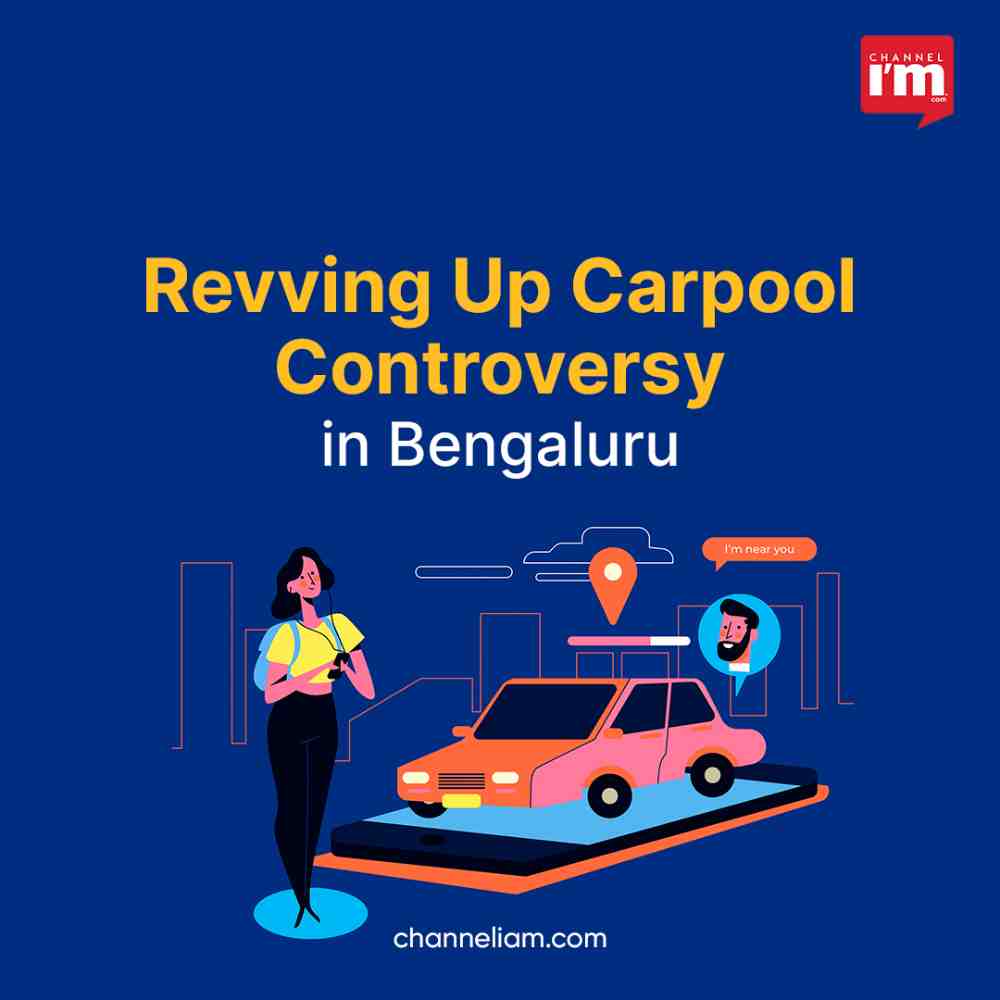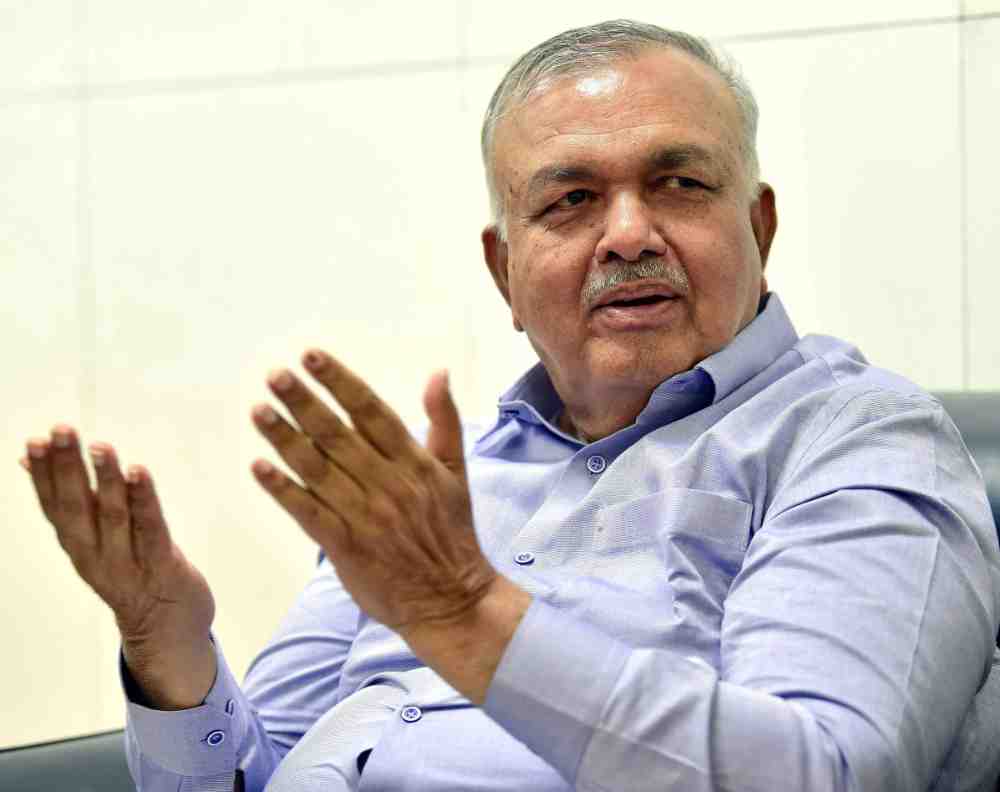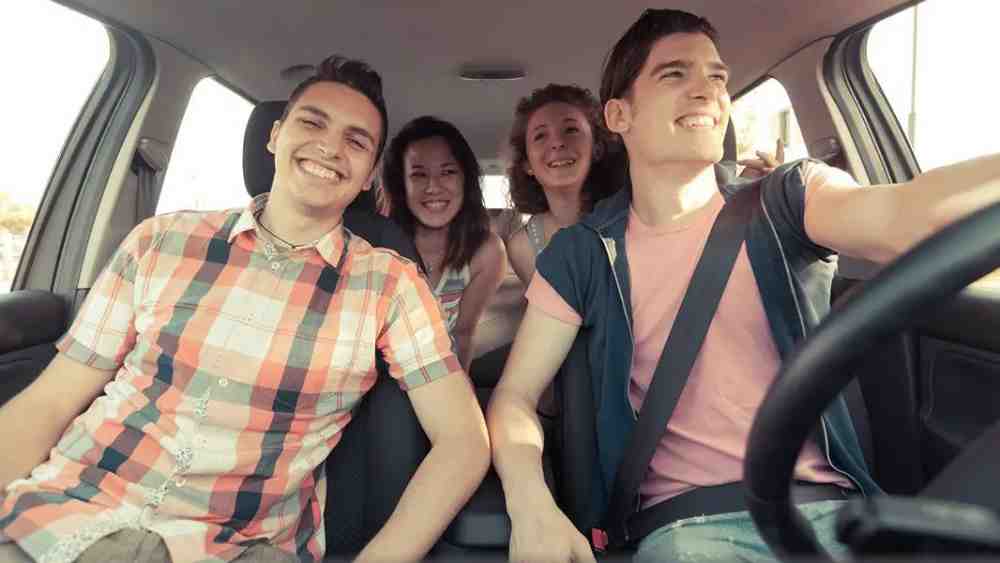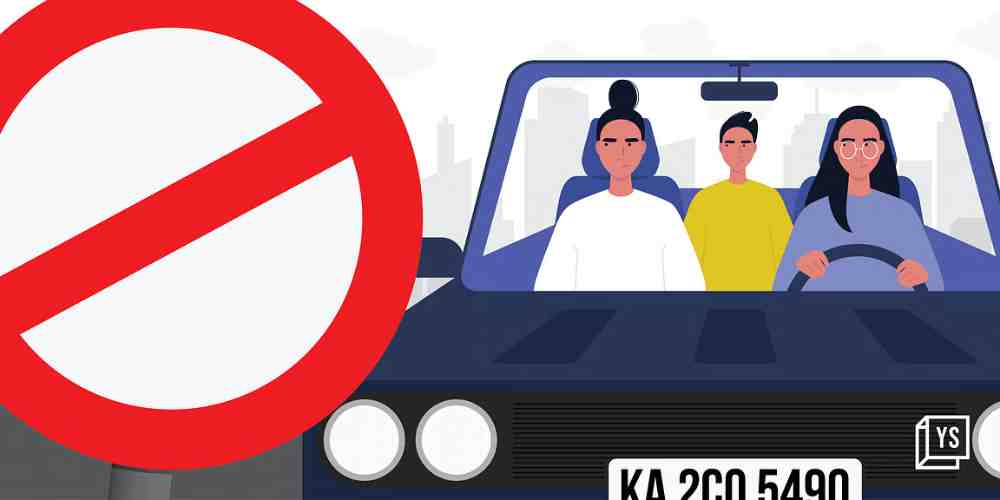As of February this year, Bengaluru, India’s Silicon Valley, earned the dubious distinction of being the second-most congested city worldwide, according to the TomTom traffic index. With a vehicular population exceeding 1.1 crore, including an astounding 75.2 lakh two-wheelers and 22.9 lakh cars, traffic woes in this tech mecca had reached unprecedented levels.

The Buzz Surrounding a Carpooling Prohibition
Recent days have witnessed a flurry of activity on social media platforms, with claims circulating that the Karnataka government had imposed a blanket ban on carpooling in Bengaluru, accompanied by the spectre of violators facing substantial fines amounting to a staggering Rs 10,000. But, in the midst of this viral frenzy, is there any substance to these assertions?

Separating Fact from Fiction: The Truth Behind the Ban
Contrary to the widespread rumours, the Karnataka government has not issued any formal prohibition on carpooling within the city limits. Leading carpooling aggregators such as Quick Ride have categorically stated that they have not received any official notices or directives from the state’s transport department endorsing such a ban. Furthermore, transport department officials themselves have unequivocally clarified that no fines of Rs 10,000 have been meted out to any individuals for their participation in carpooling activities within Bengaluru.
White-Board vs. Yellow-Board Vehicles: A Crucial Distinction
To fully grasp the intricacies of this issue, it is imperative to draw a clear distinction between white-board and yellow-board vehicles, as per the stipulations of the Motor Vehicles Act. White-board vehicles are explicitly designated for personal use, while their yellow-board counterparts are earmarked for commercial operations. The latter category incurs a spectrum of requisites, including the acquisition of permits, periodic renewals, and the shouldering of heightened operational costs.

The Genesis of the Rs 10,000 Fine Saga
The alleged imposition of a hefty Rs 10,000 fine finds its origins in Section 192A of the Motor Vehicle (MV) Act, which pertains to ‘vehicles without permits.’ It is worth noting that while the MV Act does provide for fines of up to Rs 10,000 for repeat violations under this section, no concrete fine structure for penalising carpooling infractions has been officially outlined or communicated.
Unions and Protests: The Catalysts for Controversy
The tempestuous waters of this controversy were further roiled when, on September 11, as many as 32 transport unions staged a one-day strike in Bengaluru. Their demands spanned a range of measures, including the outright ban of carpooling services and the comprehensive regulation of mobility aggregators. This strike served as the trigger for subsequent incidents where members of a prominent cab drivers’ union took it upon themselves to confront and harass Quick Ride users, an act that propelled the issue into the social media stratosphere.

A Widespread Predicament: Beyond Karnataka’s Borders
The friction between carpooling aggregators and cab drivers is by no means exclusive to Karnataka. Maharashtra, for instance, has already enacted a ban on the utilisation of non-transport vehicles for carpooling purposes. Nonetheless, Bengaluru, often hailed as the Information Technology capital of India and a thriving hub for startups, has witnessed remarkable growth in carpooling over recent years, particularly along the Outer Ring Road, Electronics City, and Whitefield areas. Quick Ride alone boasts a staggering base of over 13 lakh registered users, resulting in an astonishing 1.85 crore carpool trips in the past eight years in Bengaluru. Intriguingly, the Bengaluru Traffic Police themselves had, at one point, proposed carpooling initiatives as a means of mitigating the escalating vehicular density on the city’s roadways and alleviating congestion.
The Karnataka Government’s Clarification
In a clarification issued on October 2, the Karnataka government categorically stated that there exists no formal ban on carpooling activities within the state. Transport Minister Ramalinga Reddy emphatically reiterated that friends, neighbours, or colleagues were perfectly within their rights to engage in carpooling. However, he underscored that the operation of carpooling services via dedicated mobile applications for monetary gains necessitates the acquisition of specific licences and adherence to regulations governing yellow-board vehicles.

Cab Drivers’ Economic Hardship
Cab drivers, already grappling with the economic aftershocks of the COVID-19 pandemic, have found themselves in dire financial straits. The shift of several tech companies toward remote work arrangements, coupled with the expanded reach of the Namma Metro network and reduced incentives from ride-hailing aggregators, has adversely impacted their earnings. Cab drivers contend that carpooling and bike taxi services have further eroded their income streams, creating additional challenges in the face of inflation and rising rental costs.
Implications for Carpooling Enthusiasts
The swirling controversy has injected uncertainty and apprehension among ardent carpooling enthusiasts in Bengaluru. For many, these carpooling services are a lifeline, connecting them with verified users and offering cost-sharing solutions for daily commutes to and from their workplaces. Faced with the conundrum of overcrowded Bengaluru Metropolitan Transport Corporation buses, limited expansion of the Metro network, and infrequent public transport services, an increasing number of people have turned to carpooling apps as an attractive alternative mode of transportation. Carpooling often brings with it the twin advantages of affordability and convenience.
Shifting Tides: From Apps to WhatsApp Groups
Carpooling riders typically rely on ‘points’ to ‘purchase’ their rides, a system where carpool providers can accept these points as payment. These points are typically stored in digital wallets like Paytm, with one point translating to a rupee. However, these points must be redeemed using actual currency. Carpooling apps, meanwhile, typically charge a platform fee ranging between 6% to 9% from users. Additionally, if the earnings accrued from carpooling exceed the threshold set by the Income Tax Act for transport or conveyance allowances, users are obligated to declare and pay taxes on these earnings. Car owners who engage in carpooling are also required to extend their insurance coverage to passengers, entailing an additional premium. Given the recent controversy, many individuals have initiated carpooling arrangements through WhatsApp groups as a pragmatic alternative to conventional carpooling apps.

Insights from Other Aggregators
In addition to Quick Ride, Bengaluru boasts the presence of several other carpooling apps such as BlaBlaCar, each navigating the controversy with its own unique strategy. Some aggregators are accentuating corporate carpooling initiatives over individual profit-sharing models, marking a shift in their operational focus.
Central Government Guidelines
Central government guidelines, embodied in Clause 15 of the Motor Vehicle Aggregators Guidelines 2020 issued by the Union Ministry of Road Transport and Highways, expressly endorse non-transport vehicle pooling by aggregators, unless explicitly prohibited by the state government. The rationale for such prohibition, if implemented, must be articulated in writing and made publicly accessible through the state’s transport portal.
Charting the Course Ahead
Transport Minister Ramalinga Reddy has pledged to carefully examine the demands and concerns raised by carpooling aggregators, with a promise to deliver a definitive decision within a span of ten days. Until such a resolution is reached, carpooling apps continue to operate unhindered within the bustling streets of Bengaluru.

In summation, while the carpooling controversy has cast a shadow of uncertainty and anxiety over users and aggregators alike, the government’s commitment to engage in a comprehensive review offers a glimmer of hope for a harmonious resolution that benefits all stakeholders.
